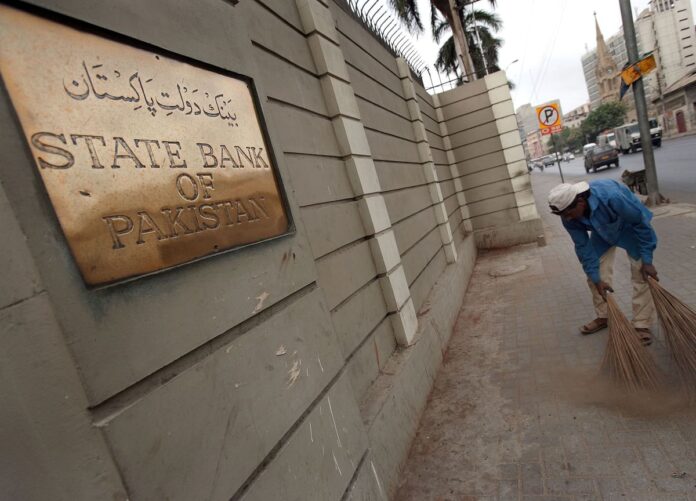LAHORE: Exporters and economists on Tuesday welcomed the Rs1,200 billion ‘stimulus package’ announced by Prime Minister Imran Khan to financially support different sectors of the economy in the wake of coronavirus outbreak, but deplored the ‘nominal cut in interest rate’ announced by the State Bank of Pakistan earlier today.
Under the PM’s relief package, the government has earmarked Rs280 billion for wheat procurement, Rs50 billion additional funds for utility stores, Rs50bn for medical workers, Rs100bn for emergency situations, Rs25bn for National Disaster Management Authority, Rs200bn for labourers, Rs100bn for SME and agriculture sectors, and Rs150bn worth four-month stipends for poor people (Rs3,000 per month).
To facilitate the export industry, the government would immediately disburse tax refunds worth Rs100bn. In addition, principal and interest payments would also be deferred.
Meanwhile, the SBP on Tuesday reduced its main policy rate by 150 basis points to 11pc. As per the central bank, the decision was taken keeping in mind the uncertainty surrounding conoravirus outbreak, and also its possible impact on the country’s economy.
Talking to this scribe, All Pakistan Textile Mills Association (APTMA) Group Leader Gohar Ijaz said that the most important decision to save the country’s economy was to bring the interest rate down to 5pc and then to zero per cent in the next six months.
“Controlling inflation by keeping interest rate high is a flawed theory that does not apply to our economy,” Ijaz opined.
APTMA Punjab Chairman Adil Bashir said that it was encouraging that the government was taking steps to support the industry. “We still don’t have the specifics, but everything depends on how quickly and effectively these are implemented.”
He, however, maintained that the 150bps rate cut announced by SBP was not enough for under the prevalent lockdown-like situation, adding that the industry was expecting a massive reduction in interest rate.
“The interest rate should below 10pc and the payment of utility bills need to be deferred for the industry.”
Agreeing with them, acclaimed economist Sakib Sherani said that the stimulus package was a step in the right direction. However, he added, it was “short on specifics as well as maybe on size.”
“The important thing is that it needs to be complemented with other measures, including the announcement of significant rate cuts.”
Sherani said that the mechanism that would be adopted by the Ministry of Finance for speedy implementation of the relief package would determine the outcome of the government’s policies.
Meanwhile, economist Dr Farida Faisal lauded the government’s performance during such these uncertain times.
“Coordination between different departments and monitoring appears to be functional. What I like about the PM’s approach is that he understands that coronovirus is an evolving problem that needs adjustment in policy and decision making.”
She maintained that all the problems of important sectors i.e. SMEs, exporters, transporters, construction, healthcare and agriculture, have been addressed under the package.
Faisal opined that the subsidy for the poorest was supplemented by efforts to control core inflation; reduction in petroleum prices and fixing of support price of wheat.
“Another good news is that local production of vital medical supplies and equipment would be encouraged,” Dr Faisal noted. “I would like to see a special emphasis on e-commerce though.”
On the other hand, economic expert and tax consultant Dr Ikramul Haq was of the view that the relief stimulus package announced by the PM was neither sufficient nor meaningful or targeted to meet the challenges faced by industry, workers and public at large.
“Unfortunately, successive governments–military and civilian alike–have been ignoring or sidetracking fundamental institutional reforms to achieve a higher rate of investment and growth and make the tax system simple, predictable, fair and equitable.”
He recalled that it was a golden opportunity for the Khan-led government in 2018 and 2019 to undertake institutional reforms but it also ignored the same, like its predecessors.
The economic expert opined that all the governments have failed to tackle the most essential issues of ensuring ease of doing business, reducing the cost of doing business, accelerating growth, inducing investment, concentrating on human skills, tapping resources, generating employment, and deconstructing the unproductive tax system which imposes high taxes, but yields low revenues.




